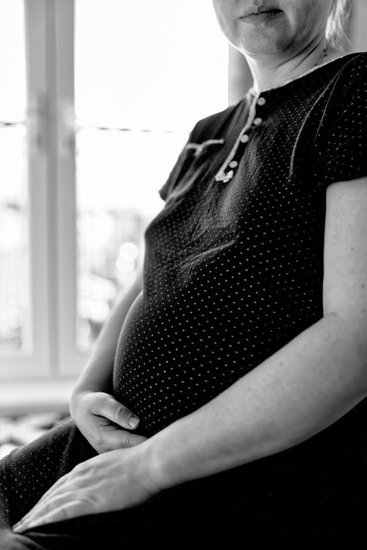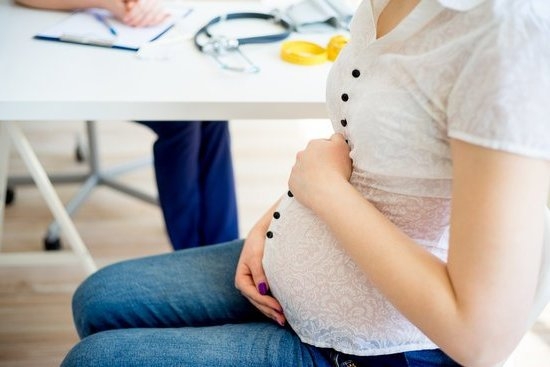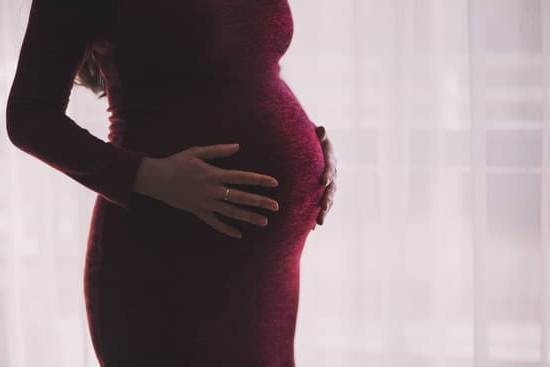How soon do you feel pregnancy symptoms after conception? Many women wonder about the timing of when they might start to notice signs of being pregnant. In this article, we will explore the early signs of pregnancy and provide a comprehensive guide to understanding the timeline and factors that can affect the onset of these symptoms. From conception to implantation, we will discuss what to look out for and when it may be time to seek medical advice.
The journey to pregnancy begins with conception, but it is during implantation that the first stages of pregnancy take place. Understanding these crucial early developments is essential for recognizing the signs and symptoms that may indicate a successful conception. By gaining insight into the physical and hormonal changes that occur during this time, individuals can better understand how soon they may feel pregnancy symptoms.
As we delve into the topic, we will also discuss how pregnancy symptoms evolve week by week, providing a detailed timeline of the changes that occur in the body as the pregnancy progresses. Additionally, we will examine various factors that can affect when and how intensely these symptoms manifest in different individuals.
This article aims to empower readers with knowledge so they can recognize and embrace the early signs of pregnancy while also being cautious about false symptoms and knowing when it is necessary to consult a healthcare professional.
Conception
After conception, the journey to pregnancy begins as the fertilized egg makes its way down the fallopian tube and into the uterus. This process typically takes about 6-12 days after ovulation, during which time the egg undergoes rapid cell division and prepares to implant itself into the uterine lining. While the journey to pregnancy is an intricate and complex process, it is also a critical stage in determining how soon you may start experiencing pregnancy symptoms.
Once the fertilized egg has successfully implanted into the uterine wall, it begins to release hormones such as human chorionic gonadotropin (hCG), which is often referred to as the “pregnancy hormone.” The presence of hCG triggers a range of physiological changes in a woman’s body, signaling the start of early pregnancy symptoms.
Many women wonder how soon they will begin to feel these symptoms after conception, and while every woman’s experience is unique, it is common for early pregnancy symptoms to start showing up around one to two weeks after a missed period.
It is important to note that not all women will experience early pregnancy symptoms at the same time or with the same intensity. Some may start feeling symptoms as early as a week after conception, while others may not notice any changes for several weeks. Factors such as individual hormone levels, overall health, stress levels, and genetics can all play a role in when and how intensely pregnancy symptoms manifest.
Implantation
After conception, the fertilized egg travels through the fallopian tube and then implants itself into the lining of the uterus. This process, known as implantation, marks the first stage of pregnancy. Implantation typically occurs about 6-12 days after ovulation, and for some women, this is when they begin to experience early signs of pregnancy.
During implantation, some women may experience light spotting or cramping. This can be mistaken for a very light period, but it is actually caused by the fertilized egg attaching itself to the uterine lining. It is important to note that not all women will experience these symptoms during implantation, so it is not a definitive sign of pregnancy.
Here are some common signs and symptoms of implantation:
- Light spotting
- Cramping
- Breast tenderness
- Mood swings
It’s essential to remember that every woman’s body is different, so not everyone will have the same experience with implantation. The timing and intensity of these symptoms can vary from one woman to another.
Some may notice these signs right away while others may not feel anything until later in their pregnancy journey. If you are trying to conceive and notice any of these symptoms around the time of your expected period, it might be worth taking a home pregnancy test to confirm whether you are pregnant or not.
Early Pregnancy Symptoms
During the early stages of pregnancy, many women may experience a variety of symptoms that can serve as an indication of their condition. While every woman’s experience is different, there are several common signs to be aware of. Here are some early pregnancy symptoms to look out for:
1. Missed Period: One of the most obvious signs of pregnancy is a missed period. However, it is important to note that this symptom alone does not necessarily confirm pregnancy, as other factors such as stress or hormonal changes can also affect the menstrual cycle.
2. Nausea and Morning Sickness: Many women experience nausea and vomiting, particularly in the morning, during the early weeks of pregnancy. This can be attributed to the hormonal changes taking place in the body.
3. Breast Changes: Changes in breast size, tenderness, and sensitivity are also common early signs of pregnancy. The breasts may feel fuller, heavier, or more sensitive than usual as they prepare for lactation.
4. Fatigue: Feeling unusually tired or exhausted is another common symptom of early pregnancy. The body’s energy levels may decrease due to the hormonal changes and increased metabolism associated with supporting a growing fetus.
It is important to note that not all women will experience these symptoms, and some may have different indicators altogether. However, being aware of these potential signs can help individuals recognize when they might need to take a pregnancy test or seek medical advice regarding their reproductive health.
Timeline of Pregnancy Symptoms
Early pregnancy symptoms can vary from woman to woman, making it difficult to pinpoint exactly when they will start to occur. However, many women begin to notice changes in their bodies as early as one to two weeks after conception. This is because the hormone levels in the body begin to shift rapidly, leading to a range of physical and emotional symptoms.
In the first week or two after conception, some women may experience implantation bleeding or spotting, which can be mistaken for a light period. This occurs when the fertilized egg attaches itself to the uterine wall and can cause mild cramping or discomfort. Other early signs of pregnancy, such as fatigue, breast tenderness, nausea, and increased urination, may also start to become noticeable during this time.
As the pregnancy progresses into the second and third weeks, these symptoms may intensify and additional signs of pregnancy may develop. For example, some women may experience food aversions or cravings, mood swings, heightened sense of smell, and frequent headaches. It’s important to remember that every woman’s experience with early pregnancy symptoms is unique and can be influenced by factors such as age, stress levels, overall health, and genetic predisposition.
| Week of Pregnancy | Common Symptoms |
|---|---|
| 1-2 weeks | Implantation bleeding or spotting; fatigue; breast tenderness; nausea; increased urination |
| 2-3 weeks | Intensified symptoms; food aversions or cravings; mood swings; heightened sense of smell; frequent headaches |
Factors Affecting the Onset of Pregnancy Symptoms
Many women wonder how soon they will feel pregnancy symptoms after conception. The truth is, the timing can vary from woman to woman and even from pregnancy to pregnancy. Several factors can affect when and how strongly pregnancy symptoms may manifest.
One factor that can influence the onset of pregnancy symptoms is individual hormone levels. Every woman’s body is different, and some may produce more pregnancy hormones, such as human chorionic gonadotropin (hCG), earlier than others. This can result in some women experiencing symptoms like nausea and fatigue sooner than others.
Another factor to consider is whether a woman has been trying to conceive and is actively looking for signs of pregnancy. It’s common for women who are actively attempting to get pregnant to hyper-focus on any physical changes in their bodies, which may lead them to notice symptoms earlier than those who are not actively trying.
Stress and overall health can also play a role in when a woman begins to experience pregnancy symptoms. High-stress levels or underlying health conditions can impact hormone levels and delay the onset of typical pregnancy symptoms. It’s essential for women to take care of their mental and physical well-being during this crucial time.
| Factor | Impact on Onset of Pregnancy Symptoms |
|---|---|
| Hormone Levels | Can affect when symptoms like nausea and fatigue manifest |
| Intentions to Conceive | Women actively trying to get pregnant may notice symptoms earlier due to hyper-awareness |
| Stress and Health | High stress or underlying health conditions can delay the onset of typical pregnancy symptoms |
False Pregnancy Symptoms
Understanding False Pregnancy Symptoms
False pregnancy symptoms, also known as pseudocyesis or phantom pregnancy, occur when a woman experiences signs that mimic those of early pregnancy even though she is not actually expecting. These symptoms can include missed periods, breast tenderness, nausea, and even a swollen abdomen. It is crucial to be mindful of these signs, especially if actively trying to conceive.
Causes of False Pregnancy Symptoms
There are several factors that can contribute to false pregnancy symptoms. Psychological factors such as intense desire for pregnancy, stress, and anxiety can lead the body to exhibit physical changes that resemble early pregnancy. Additionally, hormonal imbalances and underlying medical conditions can also play a role in presenting false symptoms. It is important for women experiencing these signs to seek proper medical evaluation and support.
Distinguishing Between Real and False Pregnancy Symptoms
To distinguish between real and false pregnancy symptoms, it is advisable for women to take a home pregnancy test or visit their healthcare provider for confirmation. This will provide clarity on whether conception has occurred or if the symptoms are misleading. Understanding the differences between true early pregnancy signs and potential false alarms can provide reassurance during the challenging journey of trying to conceive.
Seeking Medical Advice
Signs That Require Medical Attention
During the early stages of pregnancy, it can be difficult to distinguish between normal symptoms and those that may indicate a potential problem. It is important for expectant mothers to be aware of the signs that may require medical attention. If you experience severe abdominal pain, heavy vaginal bleeding, dizziness, fainting, or severe vomiting, it is crucial to seek medical help immediately.
When You Should Contact Your Doctor
If you are unsure about the severity of your symptoms or if you are experiencing any discomfort that is causing you concern, it is advisable to contact your doctor. Women who have a history of complications in previous pregnancies or pre-existing health conditions should also consult their healthcare provider to discuss the best course of action for monitoring their symptoms.
The Importance of Regular Prenatal Check-Ups
Regardless of whether you are experiencing worrisome symptoms or not, it is essential to attend regular prenatal check-ups throughout your pregnancy. These visits will allow your healthcare provider to monitor both your health and the development of your baby, detect any potential issues early on, and provide necessary guidance and support for a healthy pregnancy.
As you navigate through the early stages of pregnancy and become more attuned to your body’s changes, always remember that seeking medical advice when in doubt or when experiencing concerning symptoms becomes crucial for ensuring the well-being of both you and your baby.
Conclusion
In conclusion, understanding the early signs of pregnancy can be an exciting and sometimes overwhelming experience for many women. The journey to pregnancy begins with conception, followed by implantation, which marks the first stage of pregnancy. As the body undergoes significant changes, it is essential to recognize and monitor early pregnancy symptoms, such as nausea, fatigue, breast tenderness, and frequent urination. These symptoms typically begin to manifest within the first few weeks after conception.
As the timeline of pregnancy progresses, expectant mothers may notice week by week changes in their bodies and emotions. Factors such as individual differences, lifestyle habits, and genetics can affect the onset and intensity of pregnancy symptoms. It is crucial for women to be aware of false pregnancy symptoms and understand when to seek medical advice from a healthcare professional.
Embracing the early signs of pregnancy involves being well-informed about what to expect during this transformative time. Whether planning for a baby or experiencing unexpected symptoms, it is important for women to listen to their bodies and seek medical guidance when needed.
Ultimately, recognizing and embracing these early signs can help expectant mothers prepare for the miraculous journey ahead. Whether you’re wondering how soon do you feel pregnancy symptoms or if you’re already experiencing them – remember that knowledge and support are key in this beautiful chapter of life.
Frequently Asked Questions
What Symptoms Do You Have at 1 Week Pregnant?
At 1 week pregnant, most women do not experience any noticeable symptoms. This is because the body has just begun the process of ovulation and fertilization. Some women may experience very mild symptoms at this stage, such as light spotting or cramping.
How Many Days Will Take to Show Symptoms of Pregnancy?
The time it takes to show symptoms of pregnancy can vary from woman to woman. For some, early symptoms like fatigue, nausea, or breast tenderness may appear as early as one to two weeks after conception, while for others it may take several weeks before any noticeable signs emerge. It really depends on each individual’s body and hormonal changes.
How Soon After Will I Know I’m Pregnant?
Most home pregnancy tests claim to be accurate as early as the first day of a missed period. However, for more reliable results, it is generally recommended to wait at least one week after a missed period to take a pregnancy test.
Blood tests done by a healthcare provider can detect pregnancy even earlier, typically within 6-8 days after ovulation.

Welcome to my fertility blog. This is a space where I will be sharing my experiences as I navigate through the world of fertility treatments, as well as provide information and resources about fertility and pregnancy.





